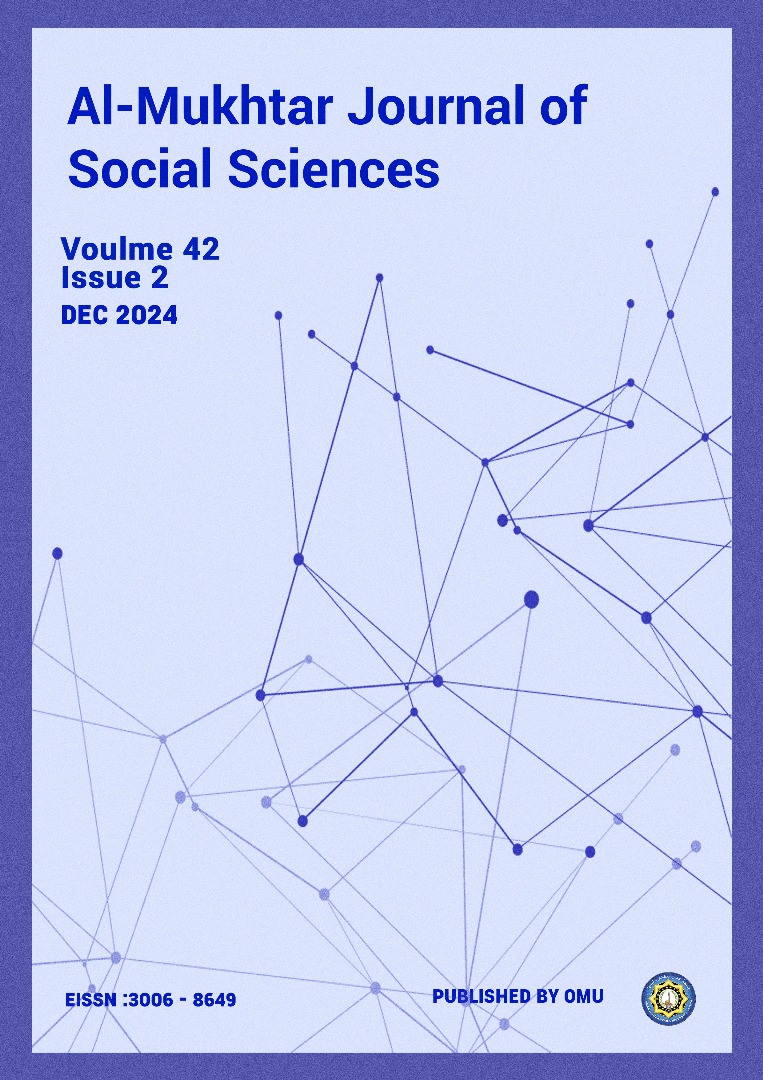The Libyan oboe, and the Libyan religious influences in Thesmophoria and Bacchic rituals in Greece
DOI:
https://doi.org/10.54172/reyemf93Keywords:
oboe, Libya, Asia Minor, Dionysos, Athena, Mother goddessAbstract
This research is concerned with studying the Libyan origins of the oboe, and its role in religious rituals of the great goddess, who was known as the mother of the gods, which were transferred from Libya to Greece and Asia Minor, As her own beliefs and rituals were transmitted with her. where the goal is to reveal the similarities between Libyan and Greek civilization, and to investigate the Libyan presence in Greece and Asia Minor. The study relied on the historical analytical approach, relying on sources, comparing them and examining them. The study reached important results, most notably: that the Libyan oboe was the first instrument known to humanity, as its history is estimated at about 100 thousand years BC., and that its invention was motivated by its use in the rituals of the marriage of the mother goddess. And From Libya, the oboe transferred to Phrygia, Thrace and Crete, then to Greece itself, and with it the worship of fertility and abundance. This transfer took place first by direct migration from Libya to Greece, and second by Greek visitors who made a pilgrimage to Libya to learn more about this belief.
Downloads
Published
Issue
Section
License
Copyright (c) 2024 Salem Younis Abd-El-Kareem (Author)

This work is licensed under a Creative Commons Attribution 4.0 International License.
Copyright of the articles Published by Almukhtar Journal of Social Science (MJSSc) is retained by the author(s), who grant MJSc a license to publish the article. Authors also grant any third party the right to use the article freely as long as its integrity is maintained and its original authors and cite MJSSc as the original publisher. Also, they accept the article remains published by the MJSSc website (except in the occasion of a retraction of the article).














